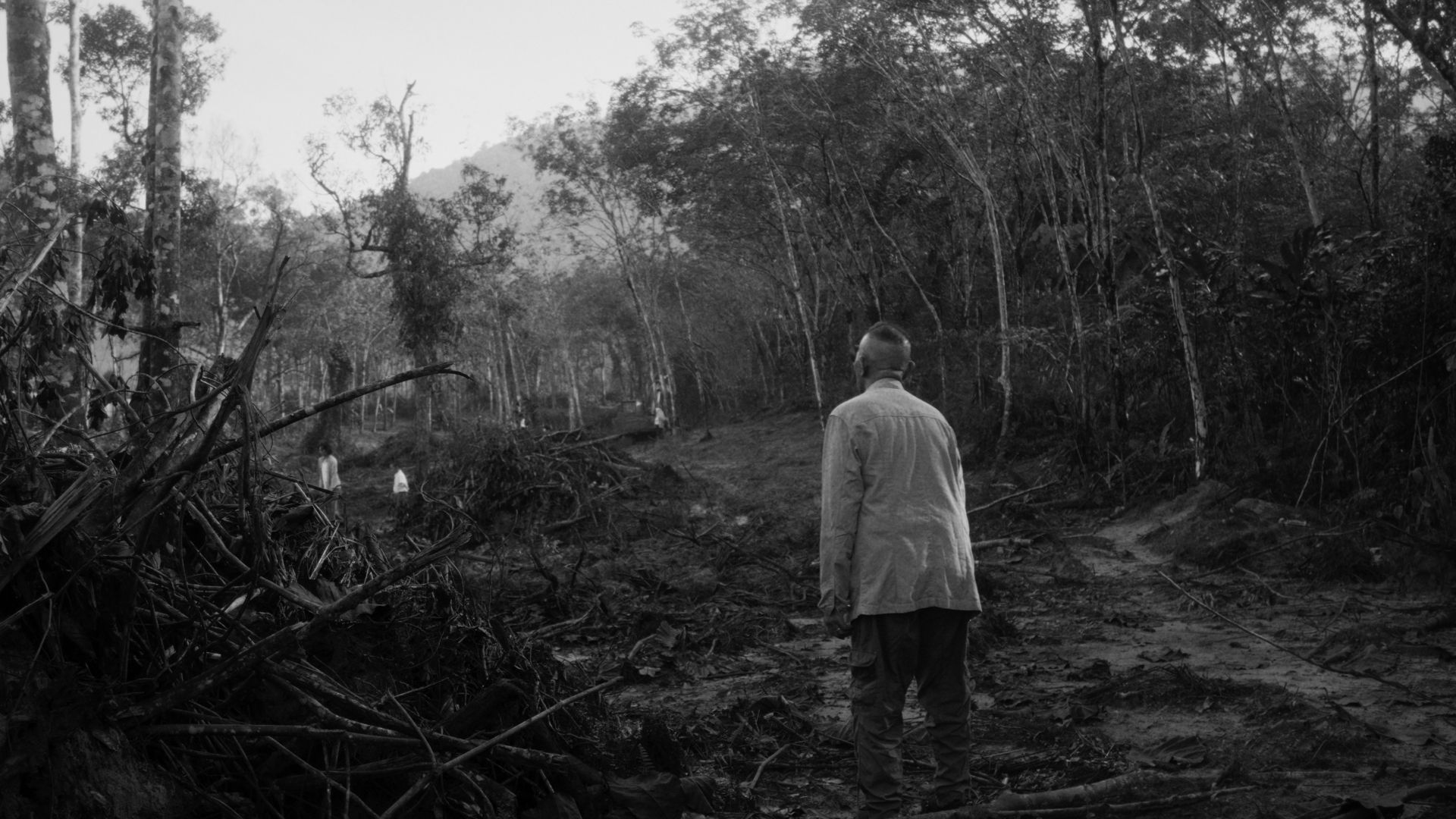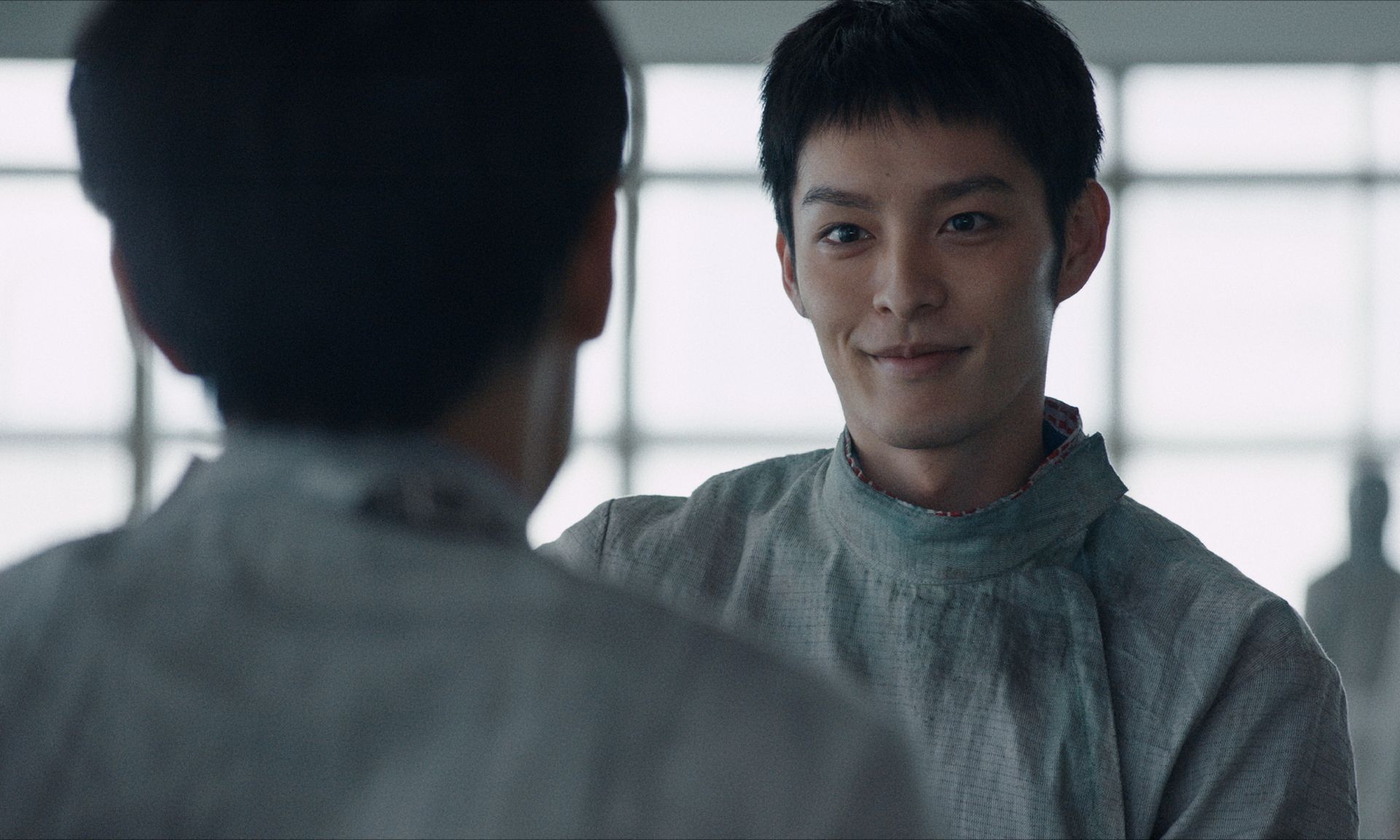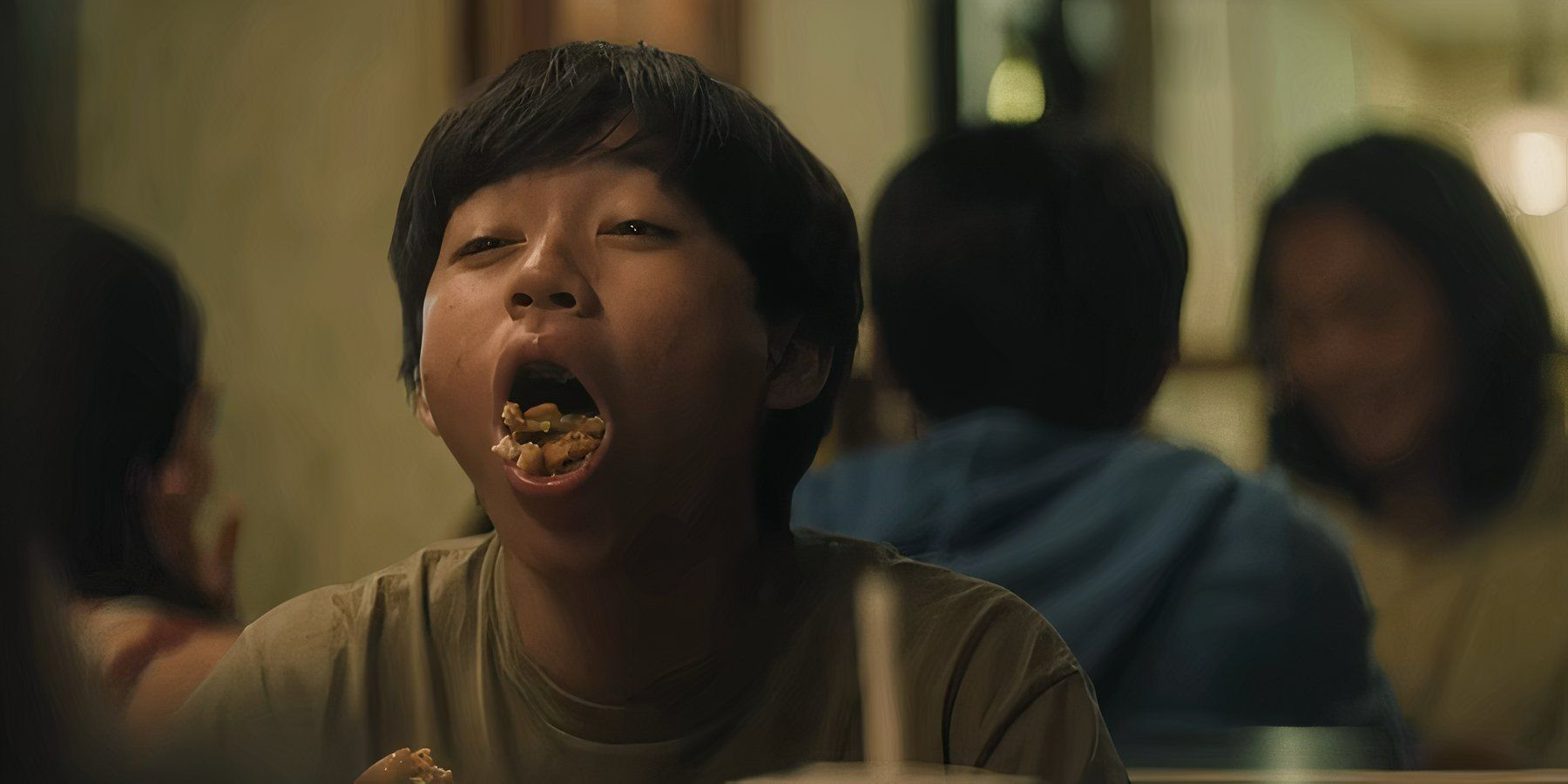Film Review #128: AMERICAN FICTION
American Fiction: A surprisingly warm-hearted film that’s more than just a sharp satire
*This film review may contain plot spoilers, reader discretion is advised.*

Image Courtesy of Claire Folger (Orion Releasing LLC)
The accurate and meaningful representation of people of colour (POC), and its growing importance in media has been brought to the forefront of society in recent years. Hollywood has made strides towards representation for people of colour, with films like Moonlight (2016) and Everything Everywhere All at Once (2022) garnering critical acclaim and resonating with audiences worldwide. It is a cultural shift which reflects the importance of authentic storytelling and of accurate storytelling of diverse cultural experiences.
Despite this progress, systemic issues hinder true inclusivity. Tokenism and the lack of diversity behind the scenes are major culprits, amplified when narratives are redirected away and produced for the white gaze. Authentic storytelling is lost and the pervasion of inaccurate, harmful stereotypes begins. We know how these stories end: rich, nuanced human experiences are shoved aside, replaced miserable, lacklustre narratives which scrape the bottom of the barrel. Are recent efforts in increasing representation merely scratching the surface, or are they indicative of genuine progress? And how can industries create diverse stories while preventing superficial representation and tokenism?
Cord Jefferson poses these questions to the audience through the thought-provoking and devastatingly witty
American Fiction. Adapted from Percival Everett’s 2001 novel
Erasure,
Jefferson keeps to the source material with the film’s biting satire and prickly wryness, spotlighting the incisive racial critique that made the novel a tour de force.
Frustrated author and academic Thelonious ‘Monk’ Ellison (Jeffrey Wright) is tired of dealing with publishers who think they know more about authentic Black stories than him. Despite his talent, Monk’s previous works have made little progress into customers’ good graces. His upcoming novel is struggling to find a publisher and he knows why. While Monk’s works are rich with cultural and historical references, publishers demand ‘a Black book’. How, they question, is the African-American experience any way connected to a literary reworking of
The Persians? On the other side of the coin, fellow Black author Sintara Golden (Issa Rae), to Monk’s dismay, disapproval and utter disgust succeeds where he disdains to tread. With her critically and commercially acclaimed novel
We’s Lives in the Ghetto, Sintara is everything Monk isn’t — adored, successful — and he hates it. Just listening to Sintara read out a snippet of
We’s Lives at a literary festival, with its use of African-American Vernacular English (AAVE) and reductive stereotypes is enough to drive Monk to the edge.
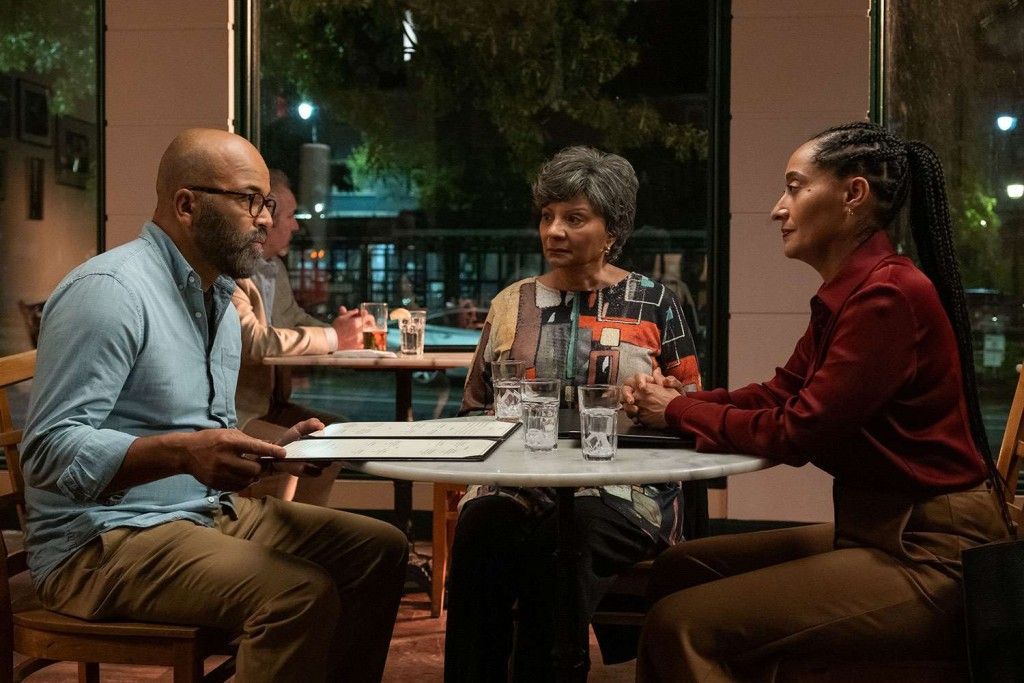
Image Courtesy of Claire Folger (MGM)
Exhausted and tipsy, Monk heads to his study one night and types out a book meant to be performance art. Chock-full of derogatory tropes,
My Pafology is submitted to his agent Arthur (John Ortiz) under a pseudonym, Stagg R. Leigh, anyways. “You wanted Black stuff,” Monk argues when Arthur initially rejects it, “What’s Blacker than that? It’s got deadbeat dads, rappers, crack and he gets killed by a cop in the end.” To the duo’s surprise, publishers not only fail to recognise the book’s absurdity but launch a bidding war for
My Pafology;
Monk-as-Stagg is even courted with seven-figure movie deals. As
My Pafology becomes a media darling, Monk can’t quite believe that something like
that
could ever be a sensation.
While Monk navigates a whole new world with sceptical eyes, he simultaneously works through his knotty family ties. His past attempts to put both physical and emotional distance between both parties has worked wonders, pouring all of himself into his middling academic and writing career. But it’s when Monk’s back with his family and loved ones in Boston that his cantankerous facade falls away. His voice is softer, his plummy accent less pronounced and you can almost feel the weight slipping off his shoulder. There’s a tender vulnerability to Monk as he reunites with his sister Lisa (Tracee Ellis Ross), brother Cliff (Sterling K. Brown), and mother Agnes (Leslie Uggams), reaching hesitantly for a flicker of connection. Amidst great personal tragedy and turmoil, they try to weave those separated strands together into something still a little worn around the edges, but no less beautiful in their attempts.
Together, the cast makes for a beautifully imperfect family. Ross and Brown, hilarious and warm, tease Wright’s Monk with the familiar banter and jokes between siblings — something the latter sees himself sliding into soon enough. Uggams’ Agnes is the dignified, poised matriarch trying to keep her family — and herself — together after so much time apart, allowing herself to be taken care of by her children as she works through a terrifying diagnosis. And although their acting is luminous, moving and heartfelt in equal measure,
American Fiction might just be Jeffrey Wright’s film. Fully realised in his portrayal of the complicated author, Wright shifts with ease through blisteringly talented and perpetually frustrated author and academic; the emotionally distant brother and son; and, eventually, someone bruised and world-weary but not entirely broken. He captures every little contradiction, idiosyncrasy, and thought Monk has with such sublime skill you almost believe he is the man himself. Monk is flawed, but Wright makes him perfectly human.
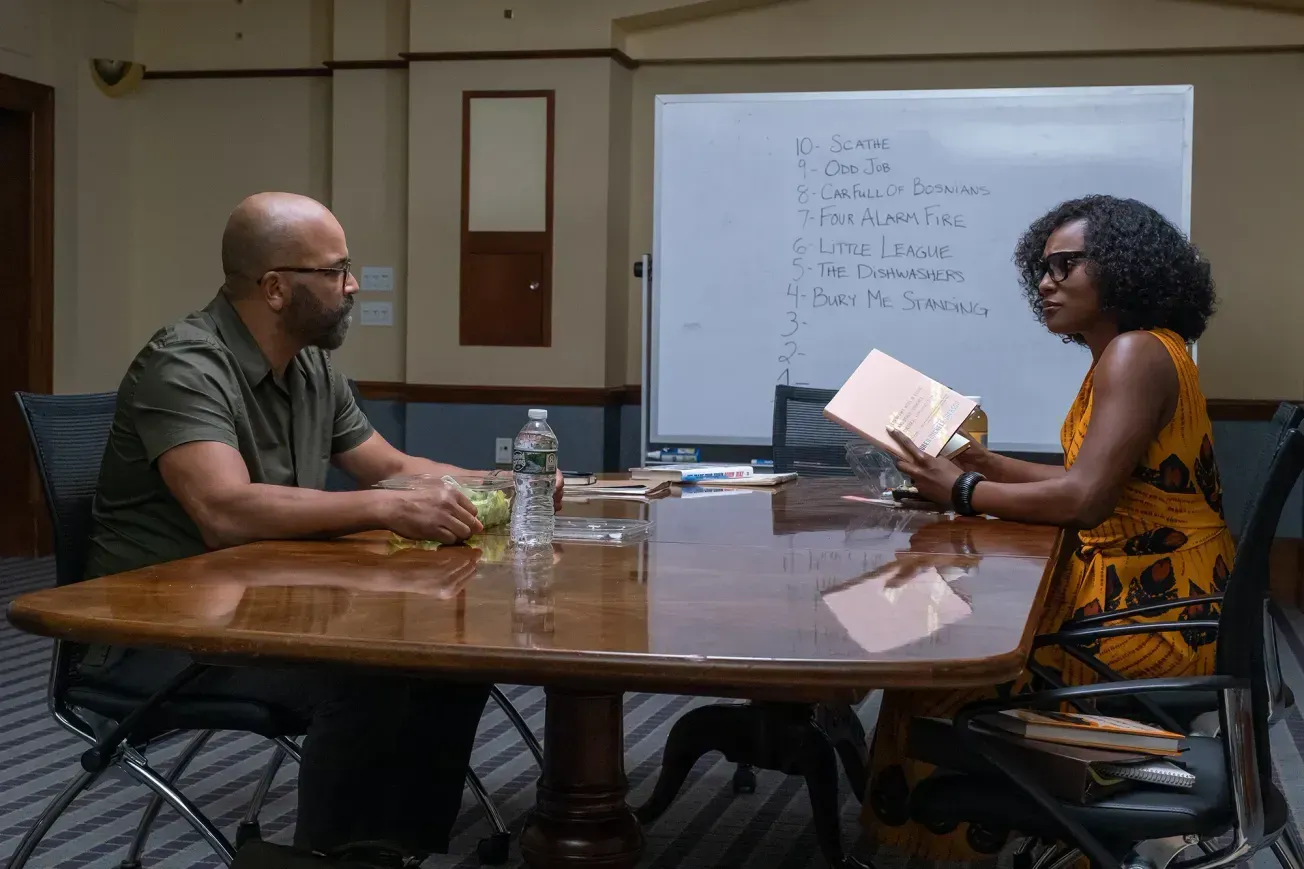
Image Courtesy of Amazon (Orion Pictures)
As the film progresses, it’s clear that Jefferson’s screenplay is no mere adaptation. It’s an elevation. Jefferson, who has cut his teeth as a screenwriter for shows such as The Good Place, Succession and Mad Men, has crafted a film with bite. A cutting examination of race and society in modern America, American Fiction never pulls its punches while bringing the audience along on a scathing takedown of the literary community, publishers and the white liberal gaze. But Jefferson’s greatest triumph isn’t American Fiction’s satirical fleet-footedness. The film is at its best when focusing on the lives of the Ellisons and those around them, creating a rich tableau of the human experience. As Monk finds himself becoming a pillar of support for his family, he becomes vulnerable enough to let his neighbour Coraline (Erika Alexander) in and fall in love. The others around him go through a similar transition, from Cliff, who has recently come out as gay, to the family’s long serving housekeeper Lorraine (Myra Lucretia Taylor), who falls in love and later marries a family friend. American Fiction is a comedy that’s smart yet sweet; empathetic yet unapologetically direct in laying out its thesis; intelligent and aching with rich emotion.
Call it a satire, call it a comedy, call it a drama if you’d like. At a glance, all three genres seem to define
American Fiction. But if you look closer, none of them truly stick.
American Fiction defies these labels to become something far greater.
Witty, warm and never dull, American Fiction is a foundation-shaking classic for the modern era.
About the Author: Kymberly has always been an avid traveller, eager to explore countries, worlds and universes both real and fictional. Drawn to film and literature from a young age, she has a passion for understanding the human condition across different places in time, and especially enjoys watching documentaries, period pieces and dramas. When she doesn't have her nose in a book or glued to a movie, you can find Kymberly rooting for her favourite sports teams at the top of her lungs, spending time in nature or working on a graphic design/editing project.
--------------------------------
This review is published as part of *SCAPE’s Film Critics Lab: A Writing Mentorship Programme, with support from Singapore Film Society.



